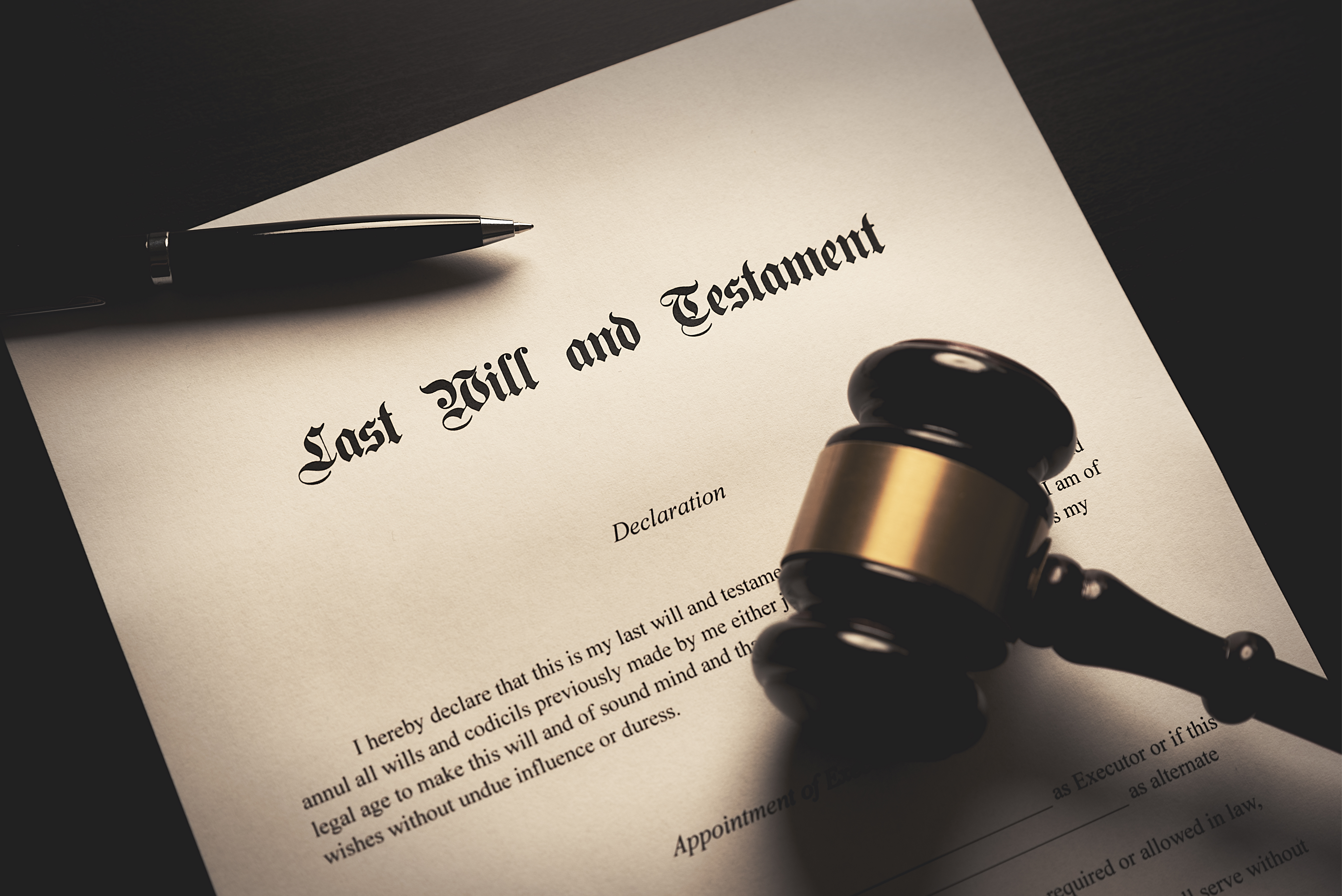
A person named an executor of a will in California has a big responsibility. An executor is a person appointed in a will to manage the property and the administration of a deceased person. California law imposes strict guidelines on an executor’s privileges and duties.
Sometimes an executor (also known as a “fiduciary”) will ignore or purposefully run afoul of their duties. This can be costly for the estate’s beneficiaries, particularly when executors seek to enrich themselves or cause the estate to be penalized.
When fiduciaries fail to meet their legal duties, the attorneys of Albertson & Davidson, LLP have the legal knowledge to hold negligent executors accountable and stand up for the rights of abused will beneficiaries. If you are an abused beneficiary or the estate of your deceased loved one is being mishandled, we can help you by filing a will or trust contest and asking the court to replace the executor.
Below are seven common examples of estate executor misconduct in California. If you suspect or know that any of these are occurring with a California estate, will, or trust you have financial standing in, we urge you to contact Albertson & Davidson, LLP today. Our litigation team has the necessary trial experience and resources to handle all matters up to and through trial to achieve your desired results. We provide a free initial consultation to explain your legal rights and options.
7 Types of Estate Administration Misconduct in California
Here are some of the most common examples of executor misconduct in California:
1. Failing to file a will with the probate court
California Probate Code requires any person in possession of an original signed will to file it with the court of the county where the deceased resided within 30 days of the person’s death.
Not all estates need to go through probate, but the majority will be processed through the courts. Some people may wonder if the estate is not large, “Do you have to file a will in probate court?” The answer is still “yes.” In many cases, wills go through a simplified procedure with little oversight by the court. However, the will must still be filed so the court can determine whether probate is necessary and to ensure the decedent’s wishes for the dispersal of the estate are followed.
In some cases, an executor of a will who is also a beneficiary may dislike some terms of the will, such as the distribution of certain assets, and fail to file it. What happens if a will is not filed? If the executor successfully hides the will and claims the deceased died without a will (“intestate”), assets will be distributed according to the laws of intestate succession, which may benefit them. The rules of intestate succession provide that assets go to immediate family members in the order defined by law.
Hiding a will is executor of will fraud, but someone would have to know a will existed and be able to prove it by finding it or providing convincing testimony to the court to file an estate fraud claim.
2. Failing to investigate all assets and liabilities of the estate
After filing for probate, an executor’s first duty is to account for all of the estate’s holdings and what it owes creditors, including tax liabilities. This is necessary to ensure that all assets that remain after bills are paid can be distributed according to the terms of the will and to prevent claims against the beneficiaries.
Failure to pay liabilities on time may result in penalties and interest on debts that cost the estate money, which consumes funds that should go to the beneficiaries. Assets that are not identified and inventoried may be misappropriated by individuals who know of their existence instead of being distributed to the proper beneficiary or divided among all beneficiaries.
3. Failing to properly manage the estate property
All estate assets become the executor’s responsibility as soon as they accept the role of executor. The executor must ensure that every piece of real, personal, and intangible property remains safe, secure, and in working order, until they are sold or distributed as required by the will.
The executor’s management obligations may range from ensuring mortgage payments or property tax bills are paid to managing investment funds, making sure a boat is moved to a drydock or a car is garaged, or changing locks on the home to ensure that the executor maintains control of access. The executor must make arrangements for ongoing services, such as mowing the lawn, and see to the repair of any damage that occurs, such as a window broken in a storm. Conversely, the executor should promptly cancel services and subscriptions no longer needed, such as cable accounts.
If any assets are sold, such as is allowed to raise funds the estate needs to operate, the sale must be at full market value regardless of who the buyer is, and the executor must not personally benefit in any way.
4. Permitting real property to fall into disrepair
Often, the most valuable asset in a deceased’s estate is their home, which must often be sold to benefit multiple heirs, since you cannot generally divide a home, and occupancy by multiple owners is typically not feasible.
But cleaning out and selling a home, as well as other requirements of settling an estate, will often take a year or more. The executor’s duty to manage the estate includes ensuring maintenance of the home and grounds so the property does not lose value before a sale. There could also be grounds for a lawsuit regarding property in disrepair if its condition leads to someone being injured while legally on the premises.
5. Mixing estate funds with personal funds
The executor of a will has a duty to account for all payments made by or to the deceased’s estate as it goes through probate. A large estate may have multiple financial accounts and numerous obligations.
An executor should open a trust or estate account for funds that the estate will spend or accrue and keep estate property and funds separate from their own. Any commingling of funds or other estate assets is forbidden and considered a breach of the executor’s fiduciary duty and grounds for charging the executor with abuse of power.
6. Executor not communicating with beneficiaries
The executor of a will is obligated to keep beneficiaries reasonably informed about steps they are taking to administer the estate and ultimately distribute its assets.
When an executor files a will for probate, they must also notify all persons named in the will and the decedent’s statutory heirs of the filing. This allows them to contest the will if they have reason to. Beneficiaries are entitled to a copy of the will. If the executor fails to provide a copy, beneficiaries can obtain a copy from the probate court.
Executors may be allowed to sell certain estate property without informing beneficiaries or obtaining consent. The court may grant an executor “full authority” or “limited authority” to act under California’s Independent Administration of Estates Act. An executor with full authority may sell any property, including real estate, at their discretion but must provide beneficiaries with a Notice of Proposed Action, which a beneficiary may object to by notifying the court.
A beneficiary has the right to request information and documents about the administration of the estate. They should do so in writing and save copies of correspondence. If the executor remains unresponsive, a beneficiary may petition the court to order the executor to release specified information or to dismiss and replace the executor.
7. Executor Withholding inheritance
Once the executor handles the debts, taxes, and other obligations of the estate, beneficiaries of the will have the right to receive their inheritance. Creditors in California have one year from the date of the debtor’s death to file a claim against the estate. A creditor then has 90 days to file a lawsuit seeking the money if their claim is rejected.
But in the end, the executor’s job is to carry out the deceased person’s final wishes as stated in their last will and testament, including distributing assets to named beneficiaries. A beneficiary who thinks the executor is not following the will’s instructions or is intentionally withholding their inheritance has the right to request help from the probate court.
Contact a California Estate Fraud Lawyer
The executor of an estate in California holds a powerful position, but it is a position with legal obligations. If you believe the executor of an estate that you are a beneficiary of has neglected their legal obligations or received unjust financial gain through their position, contact a California estate fraud lawyer at Albertson & Davidson, LLP today.
Our legal team has helped many beneficiaries preserve their inheritance when met with fraudulent and negligent administration of wills and trusts in California. We are aggressive trial attorneys who focus solely on these types of complex cases involving estates and trusts. We stand. We fight. We win.
Our law firm has offices in San Diego, Carlsbad, Bay Area, Irvine, and Los Angeles, CA. Contact us online or at (855) 928-0542 for a free initial consultation.

